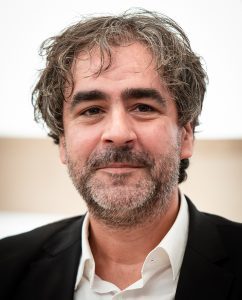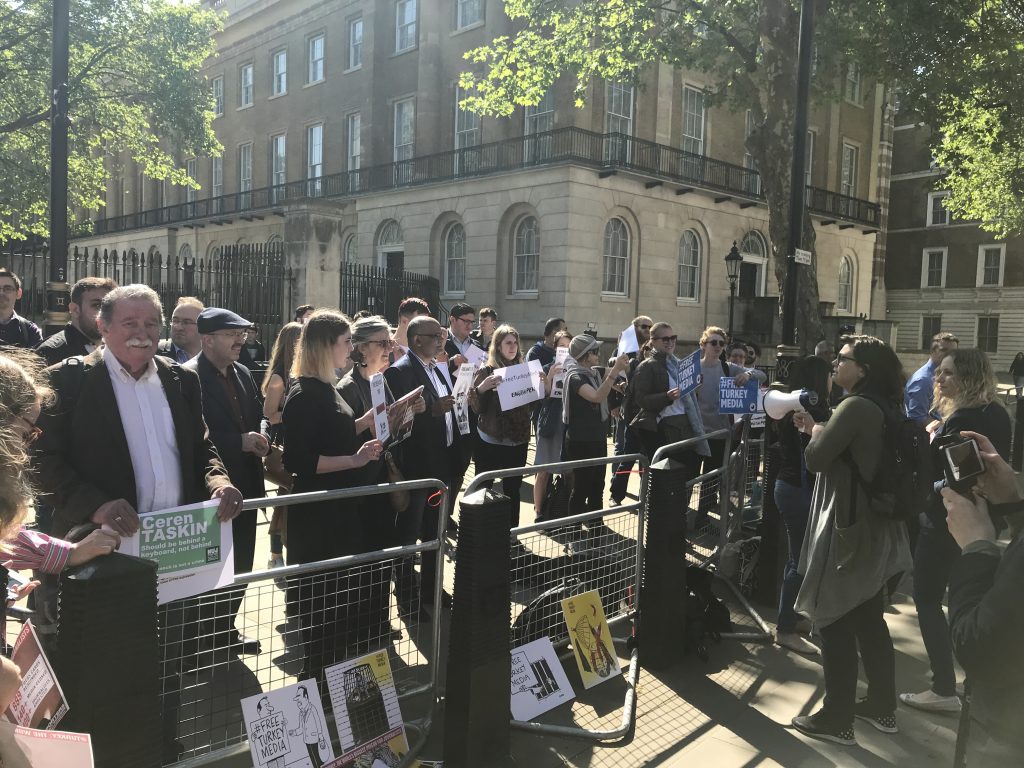Index relies entirely on the support of donors and readers to do its work.
Help us keep amplifying censored voices today.
Recep Tayyip Erdogan has won Turkey‘s presidential election for the second time. His victory will mean he has a tighter hold of his country. What was the result of the election? With a high voter turnout of 87 per cent, Mr Erdogan hailed victory in the presidential poll on Sunday. He managed to overcome what many considered was an opposition party that had been gaining momentum. Read in full.
[vc_row][vc_column][vc_column_text]This article is part of an ongoing series exploring the issues raised by Index on Censorship’s Monitoring and Advocating for Media Freedom project.[/vc_column_text][vc_column_text]Istanbul has been controlled by Recep Tayyip Erdoğan and his Justice and Development Party (AKP) since 1994, when Erdoğan was first elected mayor of the city. Erdoğan has repeatedly stated that, “Whoever wins Istanbul wins Turkey,” but in local elections that were seen as a referendum on his leadership, Erdoğan lost Istanbul – not once but twice. The opposition (Republican People’s Party – CHP) increased its lead over the AKP from 13,000 votes to 777,000 in the election re-run on 23 June.
“We will bring freedoms to this society, we will repair the injustices of this society,” Istanbul’s new mayor, Ekrem İmamoğlu, exclaimed to the crowd as he celebrated his victory. Under Erdoğan, civil liberties have increasingly been curtailed: since the attempted coup d’état in 2016, more than 200 journalists have been arrested or detained on account of their work. The state of emergency, which was imposed in the wake of the coup, ended last July but the chokehold on the press has continued. In the first half of 2019, Turkey accounted for 12.3% of all the alerts on the Council of Europe’s Platform for the Protection of Journalism and Safety of Journalists, a mechanism that monitors threats to media freedom in 47 countries.

Deniz Yücel
But can journalists soon hope to be able to carry out their work without fear of threats or judicial harassment? Individual rulings that seem to suggest so – such as the Constitutional Court’s ruling on 28 June that Turkish-German journalist Deniz Yücel’s year-long detention was illegal – should not be interpreted as indicators of the AKP’s weakening grip on the judiciary. As Sinan Ülgen of the Edam think-tank wrote the day after the Istanbul election re-run, “very little” may change in the near term.
In June, journalists in Turkey continued to face judicial harassment in the form of investigations, police raids, detentions, and travel bans. On 12 June, 27 employees of the defunct Kurdish-language daily Azadiya Welat became the subjects of an investigation by Diyarbakır Chief Public Prosecutor’s Office. Three days later, in a separate case, seven journalists were taken into custody during a police raid on Etkin News Agency (ETHA) in Istanbul. They were held at the Security Branch of Istanbul Security Directorate for four days, before being released under travel bans.
A newspaper close to the ruling party called the CHP’s win a “ballot box coup d’état”. When Erdoğan’s leadership was challenged by the 2013 Gezi Park protests or the 2016 coup, he responded by further choking dissenting voices. This time, will his response be different?[/vc_column_text][vc_basic_grid post_type=”post” max_items=”4″ element_width=”6″ grid_id=”vc_gid:1562165496706-c1b57e11-b6c6-3″ taxonomies=”8996″][/vc_column][/vc_row]
Protests have been taking place outside Downing Street ahead of Turkish president Recep Tayyip Erdogan’s meeting with Prime Minister Theresa May. Mr Erdogan, who arrived in Britain on Sunday for a three-day visit, will also meet the Queen. Read the full article.
[vc_row][vc_column][vc_column_text]

Index on Censorship magazine editor Rachael Jolley leads chants in support of Turkey’s jailed journalists ahead of Erdogan visit to Downing Street
Hundreds of demonstrators gathered outside Downing Street today ahead of Turkish president Recep Tayyip Erdogan’s meeting with UK prime minister Theresa May.
Index joined English Pen, Reporters Without Borders, Cartoonist Rights Network International and dozens of protesters to call on the British government to hold president Erdogan accountable for the ongoing crackdown on journalists and free speech within Turkey following the attempted coup in July 2016. Other groups, including the Kurdish Solidarity Campaign, also demonstrated against Erdogan’s visit in large numbers.
#Erdogan #FreeTurkeyMedia pic.twitter.com/csiCObDIuo
— Index on Censorship (@IndexCensorship) May 15, 2018
Addressing the crowd, Index on Censorship magazine editor Rachael Jolley said: “If Theresa May cares about free speech, if this government cares about free speech and free expression, this should be on the table for this meeting with President Erdogan. “This British government often talks about its commitment to free speech, so let’s see the sign of this in its international politics. How can we believe in a government’s commitment to free expression if it is willing to meet international leaders where free expression is massively threatened and they do not talk about that.”
Many protests outside Downing Street this morning ahead of #Erdogan’s visit. We call on @Theresa_May to raise the issue of #Turkey’s 155 imprisoned journalists. #FreeTurkeyMedia #JournalismIsNotACrime pic.twitter.com/9VR9zAvreW — Index on Censorship (@IndexCensorship) May 15, 2018
Under the state of emergency declared since the intended coup in 2016, voices critical of the Turkish government have seen a major crackdown.
— Ryan McChrystal 🐙 (@RyanMcChrystal) May 15, 2018
Demonstrators call for a #freeturkeymedia A post shared by Index on Censorship (@indexcensorship) on
[/vc_column_text][/vc_column][/vc_row]